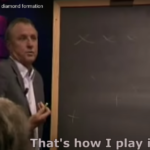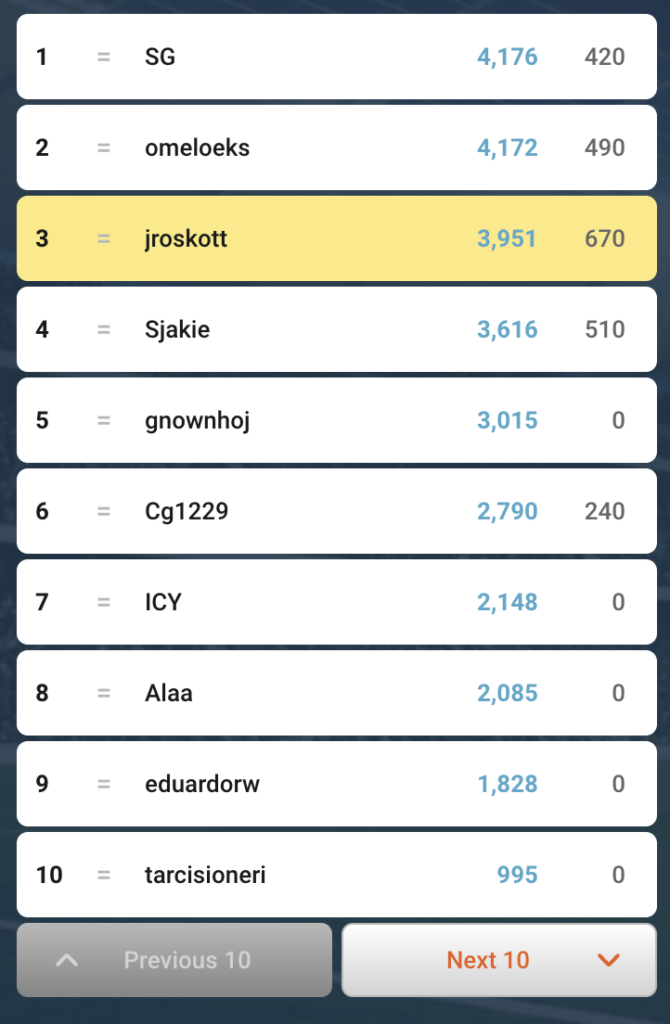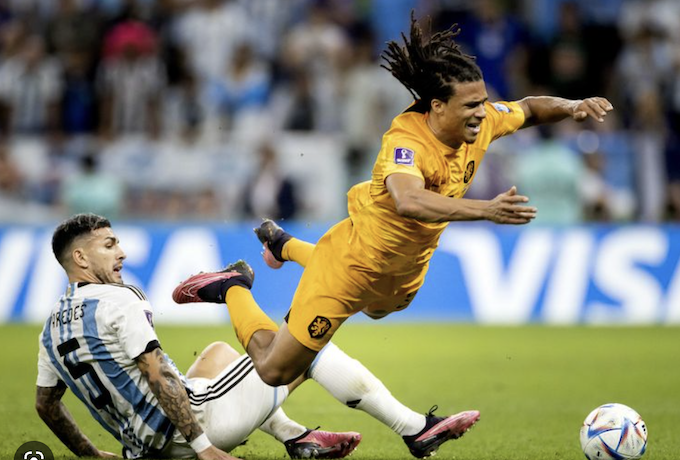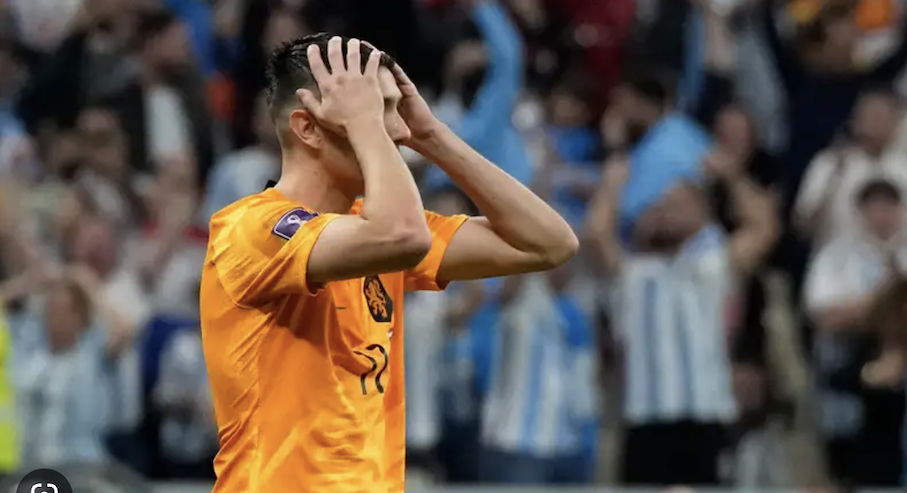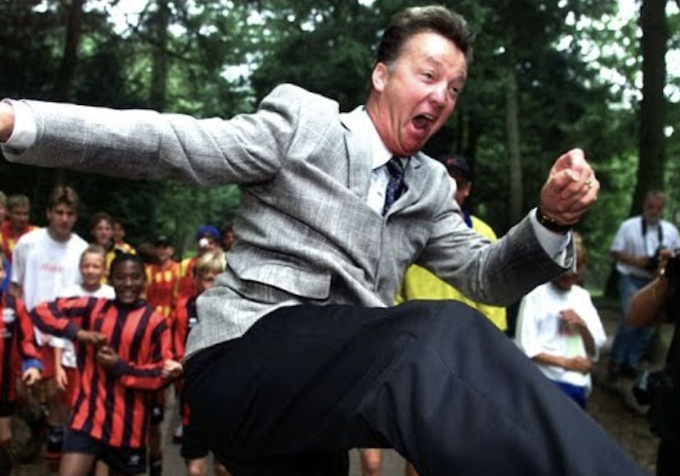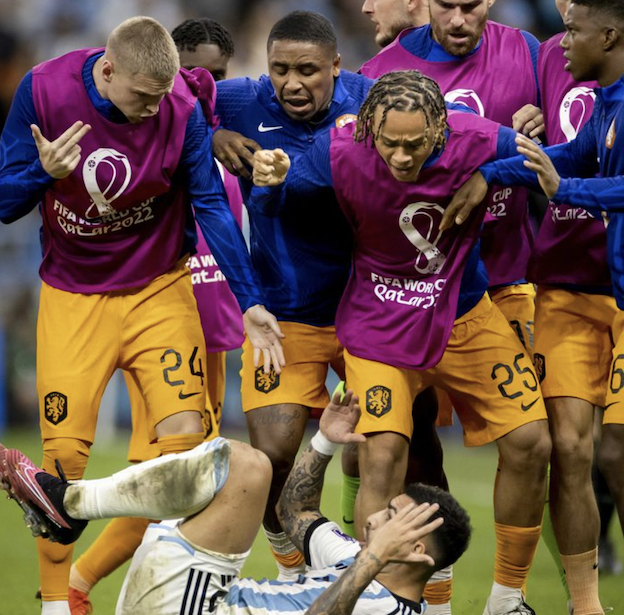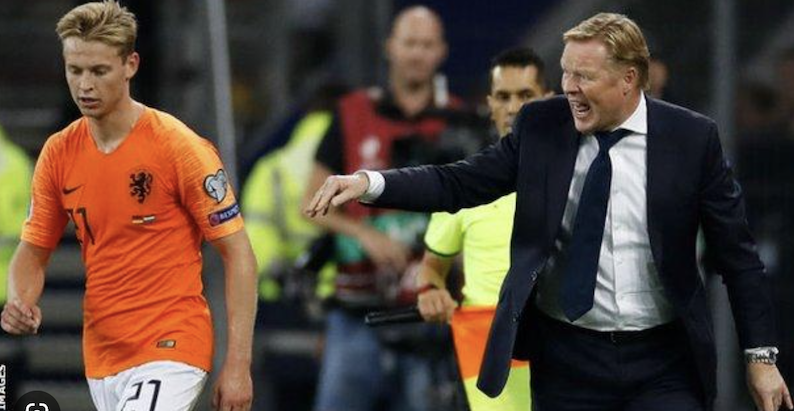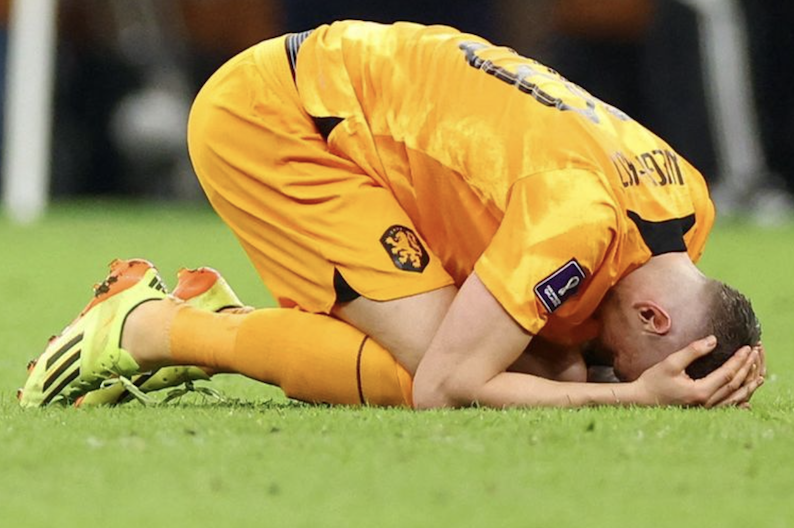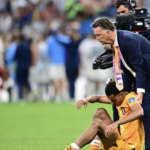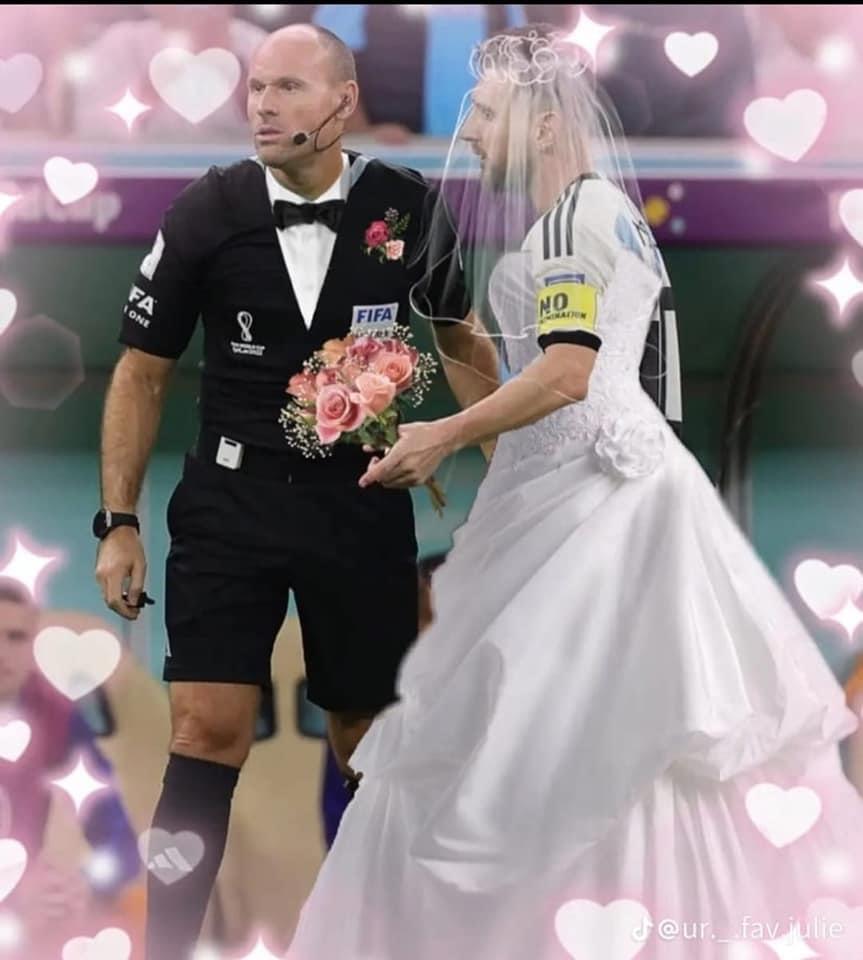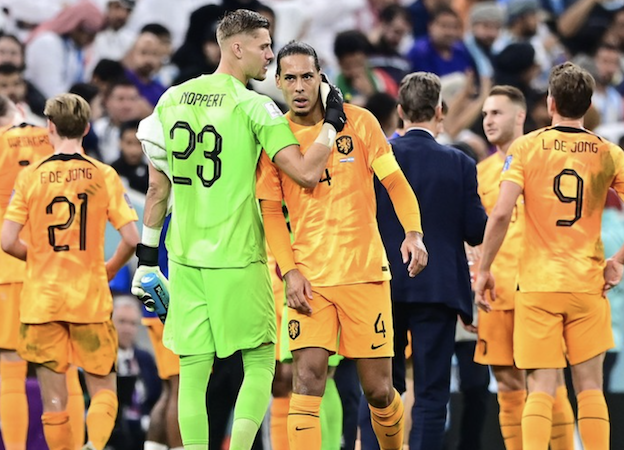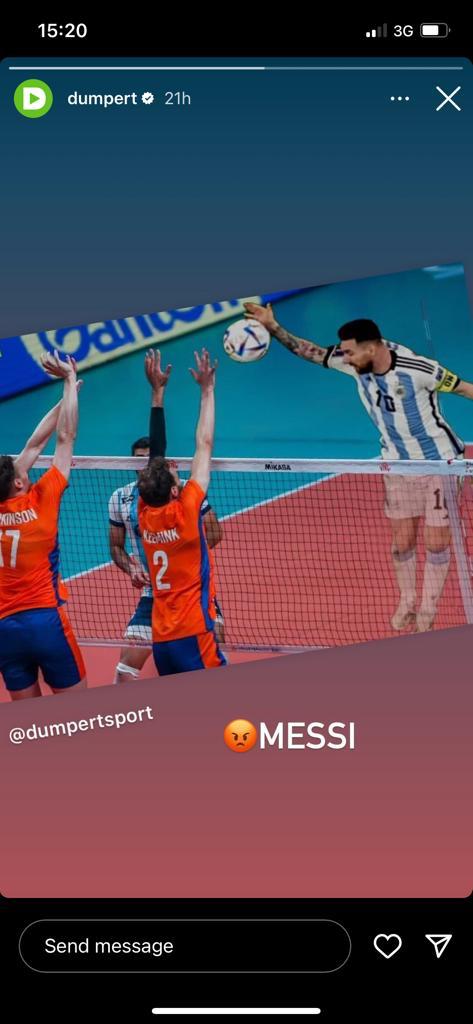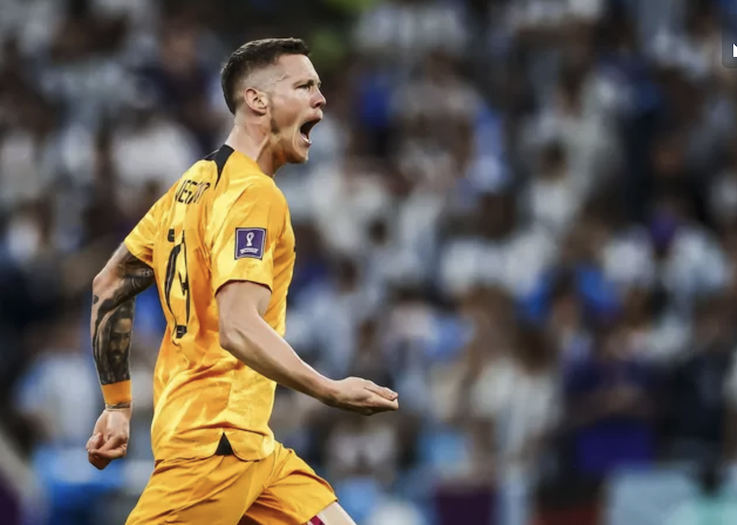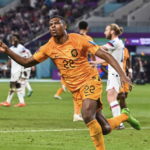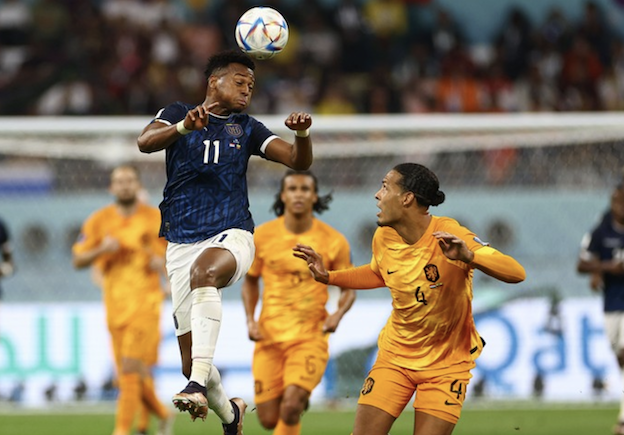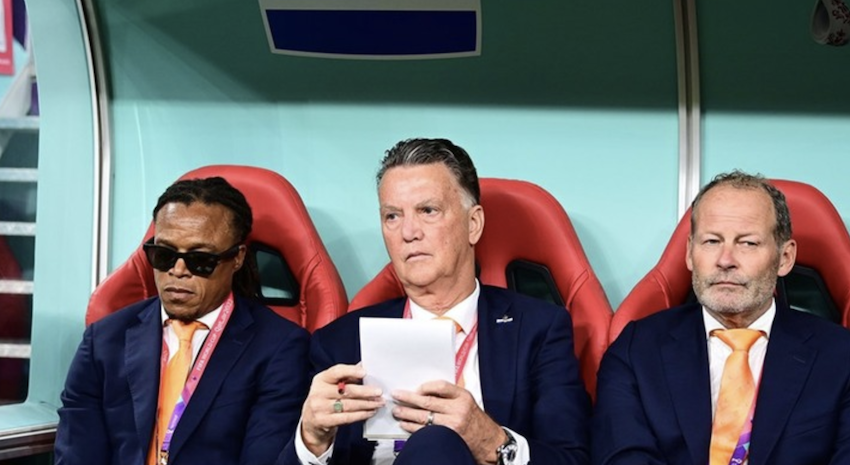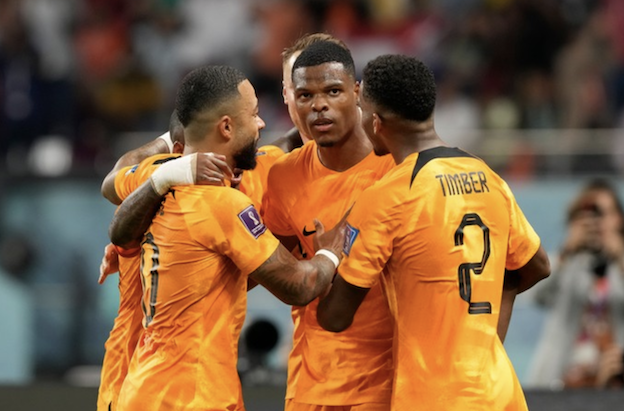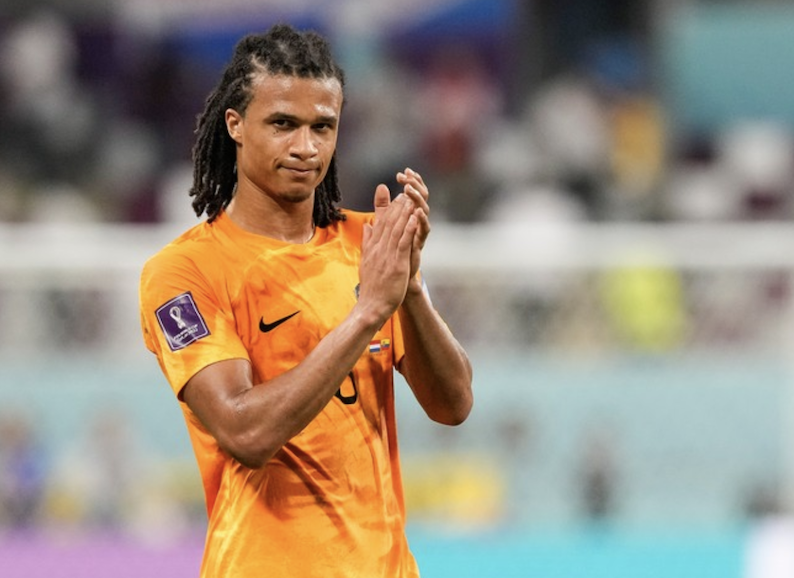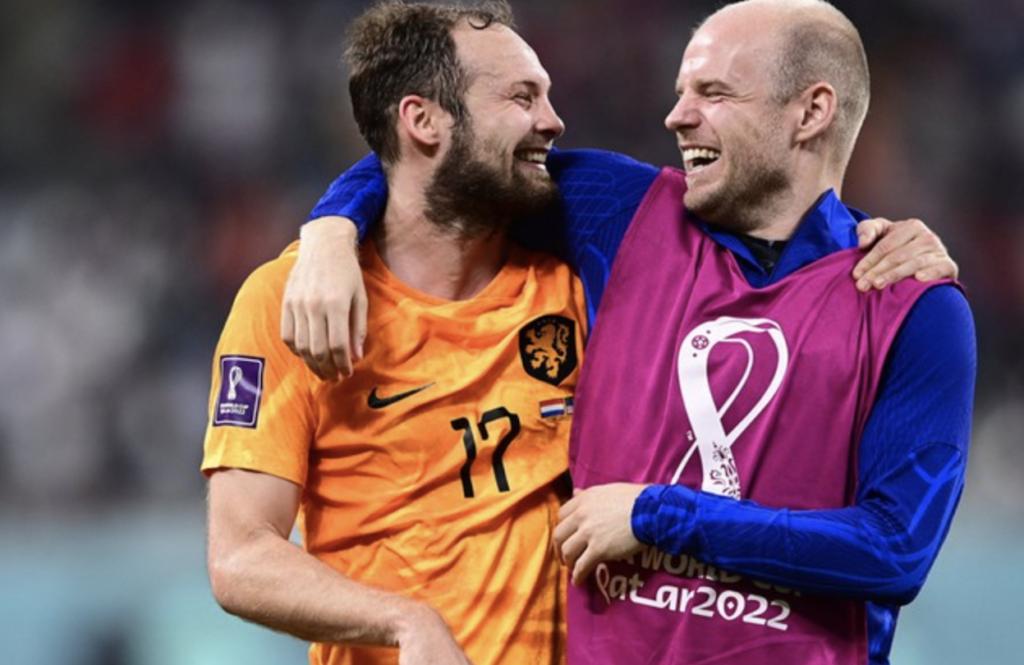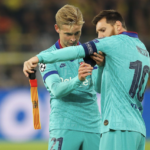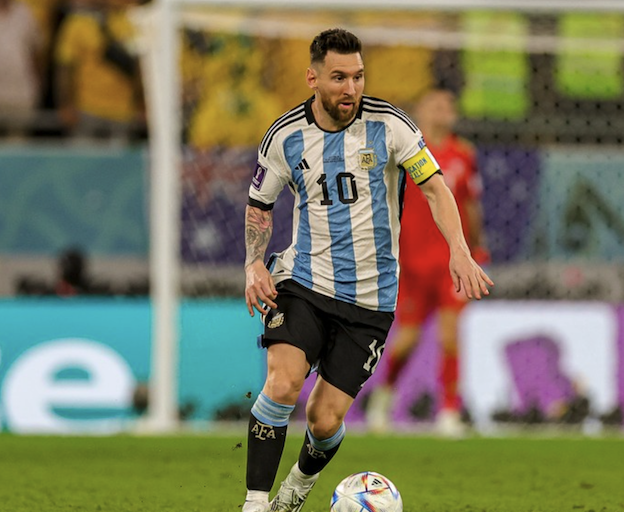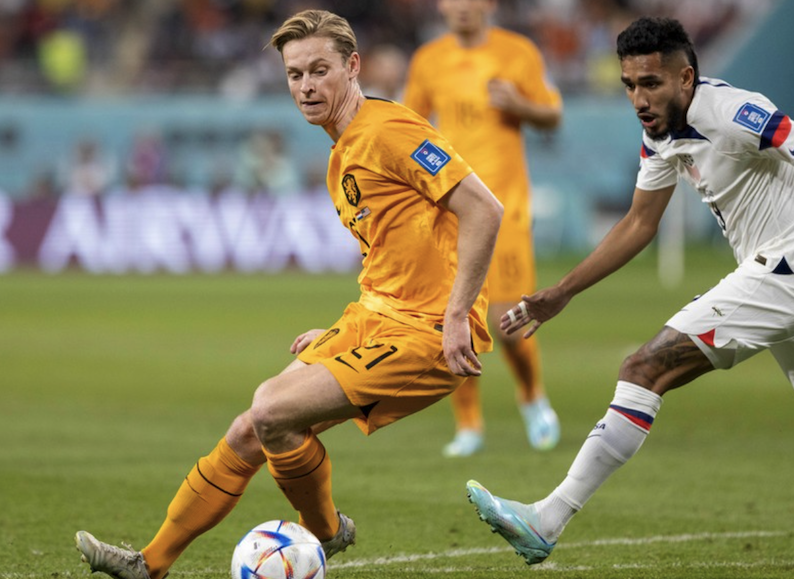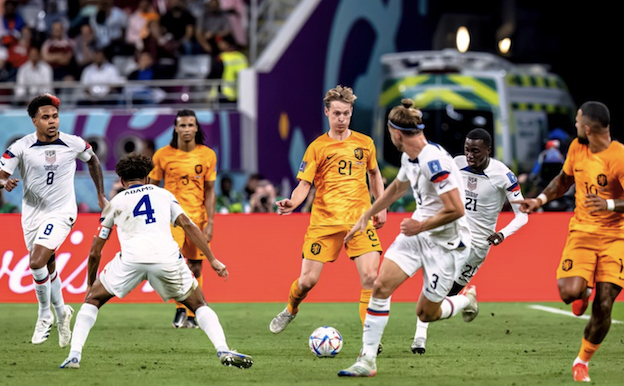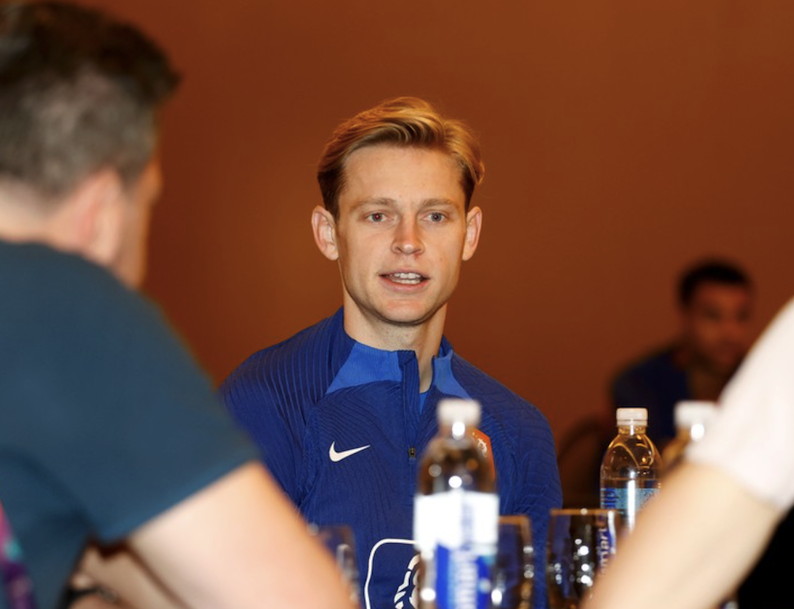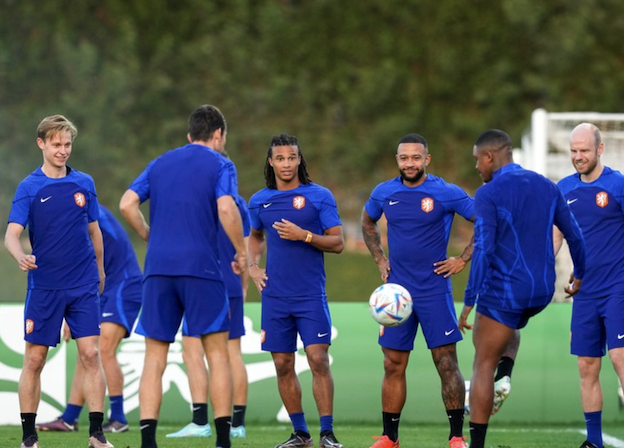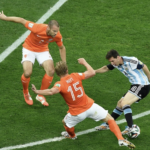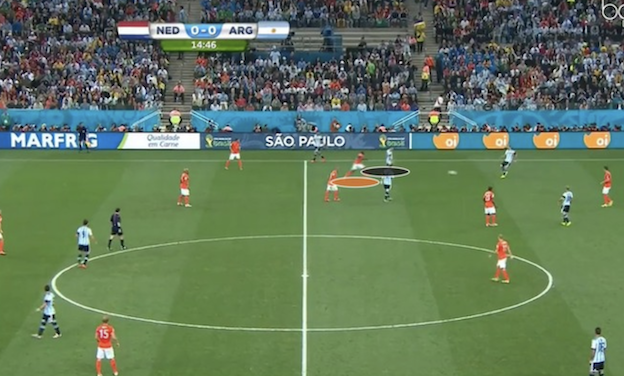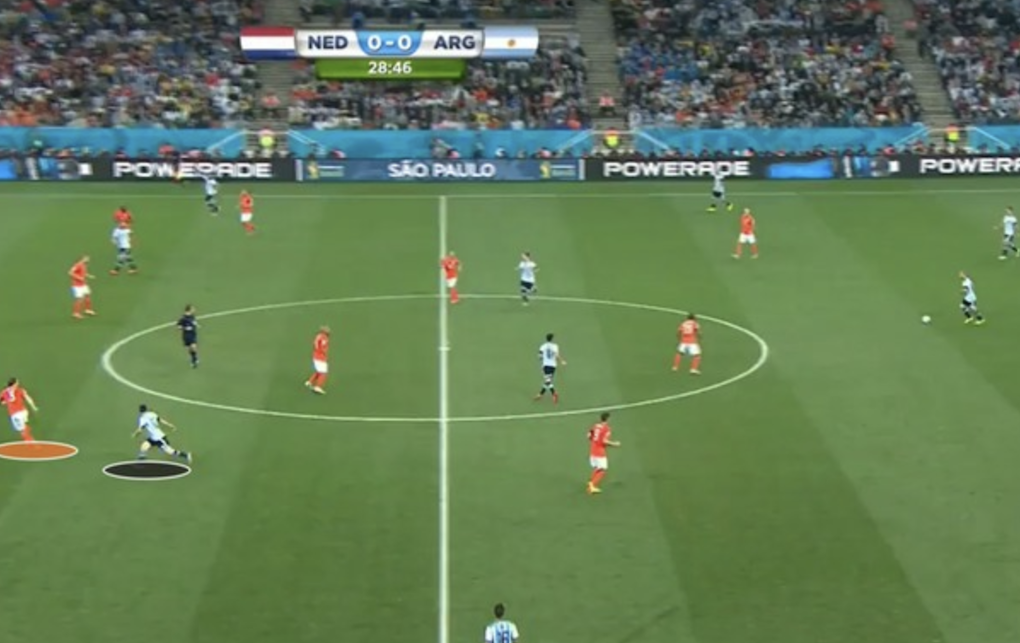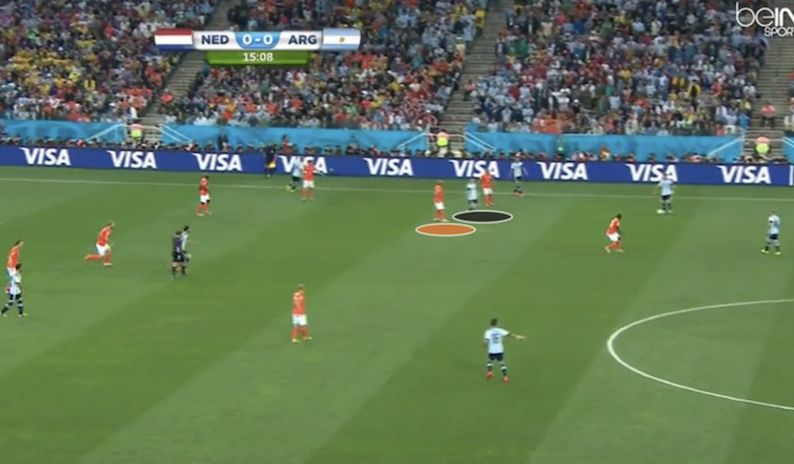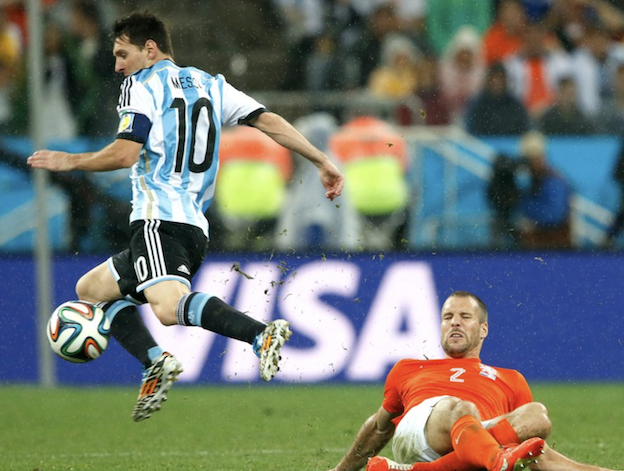And here is the final result of the little Scorito competition we had going, the competition of course being called Lowievenkaals Armie. Shawn is the absolute GOAT of this competition.
Shawn, congrats! You will have bragging rights till the next World Cup. Robin is France, I am Croatia and Sjaak is Morocco. Ah well….
Despite a heroic comeback versus Argentina, Oranje is home licking their wounds. I am sad Morocco didn’t get a trophy to show for their contributions and with the Atlas Lions out, the real Dutch connection ( Ziyech, Amrabat, Mazraoui, Aboukhlal) to this World Cup is gone. There is no real connection with the French for us, and generally speaking, the Dutch are not big fans of Les Blues. Messi will always be my fave player, even if he gave Weghorst and LVG a piece of his mind. The Argentinian connection is there (Rijkaard / Ten Cate > Messi, Tagliafico and Martinez > Ajax) and I wish them well.
In The Netherlands, it’s back to the drawing board. Van Gaal’s final conclusion seem to have been “We have not wingers of top class”. Despite this, it was the move of Gakpo to the left and Berghuis to the right with two tall towering strikers which got us the equaliser and extra time in the quarter finals. It was warrior Wout Weghorst who got the final free kick which Koopmeiners took in Weghorst’s Wolfburg style, to get us a sniff of hero-ism. But Van Gaal made a bad judgement call for the extra time, counting on penalty success.
The fear of conceding was bigger than the wish to kill the opponent off.
Before the match, he also made a bad call, in thinking Argentina would not adjust to us and he felt the 3-4-1-2 would give us a good chance to win. But, Scaloni surprised by bringing Martinez as an extra defender, nullifying our tactical “advantage”. Argentina forced the ball onto us and this scenario paid out for Scaloni.
One brilliant Messi pass and a cheap penalty gave Argentina the lead: Van Gaal beaten with his own stick.
Since the bronze medal in 2014 we missed out on two major tournaments. We seemed to stick to what we know best, building up from the back, possession based football with wingers. All this in an era in wich the game got quicker and more tactical. Countries like Iceland, Sweden, Turkey and Bulgaria were able to throw sand in the not-so-slick Oranje machine, by defending as a team and playing compact. Waiting for the mistake. The Dutch were the Dodo of International football.
Self professed fans of Dutch football, Guardiola and Klopp were able to introduce concepts like the high press and positioning play by dividing the playing field in particular zones. In this way they found new ways to achieve balance while attacking. In the Eredivisie, coaches like Peter Bosz, Erik ten Hag and Arne Slot followed suit and were able to perform on the European stage with success.
Ronald Koeman copied this blue print after a shaky start. Left back Blind became the third central defender in the build up. Bergwijn would drift inwards, opening up space for Dumfries who covered the full right flank. On the other flank, Koeman used Ryan Babel to keep the width on the left. The yield of the wingers was limited. Bergwijn didn’t score at all in 9 matches, Babel scored 4 in 17 matches. Oranje was very dependent on Memphis Depay and his partnership with Gini Wijnaldum. Under Koeman we beat France, Germany and England, but we also lost against France, Germany and Portugal.
We could beat any team but we could also lose against any team. Under Frank de Boer we lost against Mexico, Turkey and the Czechs using different systems. This was the context when Van Gaal stepped in.
Van Gaal decided to use the learning from the past and introduced the compact playing style to the team, with the aim to build up with short passes and moves in order to combine forward. The execution was poor, to say it nicely. The simple basic things didn’t work. Creating triangles to get players on the ball, for instance. In particular the right flank was weak. No wonder Oranje played its best game against the USA, the only game in which we had less possession than the opponent.
We can debate endlessly about what went wrong, but in essence it comes down to quality, or lack thereof. Phillipp Lahm, the former Germany full back, said it best when comparing Argentina with Holland: “All the players of Argentina have what it takes in modern football: strong in the one versus one, defensively and offensively. These individual skills are what it takes to win matches, not tactics.”
Guardiola says it differently: “When I look at a player to sign for my club, I basically look at one thing only: can he dribble. Does he control the ball? I only want players who have a dribble. All the other things, like a touch, or a pass or a shot, I can teach. I cannot teach players to dribble. It’s impossible to beat a defensive team without players who can dribble.”
These are quite succinct statements explaining the problems we currently have with Oranje.
In five matches, incl extra time vs Argentina, we mustered 17 successful dribbles. That is less than Jamal Musiala of Germany on his own. Only Cody Gakpo managed to do this more often than twice. Gakpo totalled 5 successful dribbles, all in all. Mempis had 2. Denzel Dumfries? Zero. Frenkie had 3, Timber 3 and Berwijn only 1.
Arjen Robben had 5 successful dribbles in one match, in 2014. The lack of form and fitness of Memphis was not present this time, as he usually is the player to create something out of nothing.
We lacked creativity. That is the bottom line. In 2016, the Dutch FA came with a report: Winners of Tomorrow. Their conclusion was that we needed better defenders! While at that time, Ake, De Vrij, Martins Indi, Blind and others were already playing at very decent levels in Europe. While attacking creative talent was scarce.
Our successful generations ( Cruyff, Rensenbrink, Rep, Van Basten, Roy, Witschge, Davids, Kluivert, Bergkamp, Rijkaard, Rob de Wit, Van der Vaart, Robben) were produced not at the club but on the street. Exactly like Brazilians or Moroccans are developed. The youth academies don’t seem to be able to replicate the street, in their youth development plans.
This is the most important lesson for the KNVB. That, and never ever allowing a coach to abandon his post because a dream club is interested in signing him.

